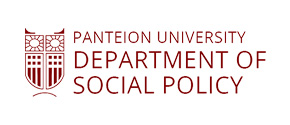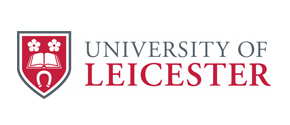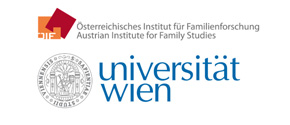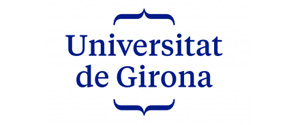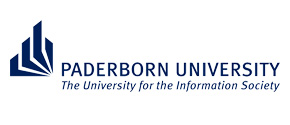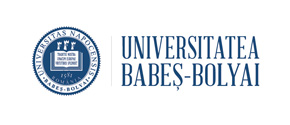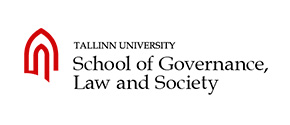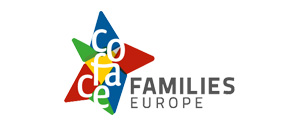consortium members
Norway
(coordinator)
Oslo Metropolitan University (OsloMet) is Norway’s third-largest university. The University is unique due to its wide range of professional programmes and a strong focus on qualifying students for professions that will contribute to the future welfare and value creation in Norway and Europe. International collaboration and participation in international research projects like DigiGen is a prerequisite to success. In addition to DigiGen, OsloMet is leading several Horizon 2020 projects in health, welfare, education, youth and unemployment. The DigiGen team is led by Professor Halla B. Holmarsdottir from the Faculty of Education and International Studies (LUI) and includes members from OsloMet’s Institute for Norwegian Social Research (NOVA).
Contact person: Halla B. Holmarsdottir, Vice-Dean of Research
Greece
Panteion University of Social and Political Sciences is one of the largest universities in Greece, specialised in social and political sciences. It has ten departments and eighteen research centres, and covers numerous scientific disciplines and interdisciplinary fields, such as sociology, social policy, political science, public administration, social anthropology, psychology, gender studies, communication, media and culture, and economic and regional development. It currently has about 18.500 undergraduate and 1.500 postgraduate students.
United Kingdom
The University of Leicester is among the best UK and global universities, ranked 167th in the world. The university strategy seeks to foster a culture of collaboration, success built on partnership and innovation and an international focus. The School of Media, Communication and Sociology (MCS) derives its intellectual identity from a commitment to tackling ‘real world’ problems in the pursuit of equality, diversity and social justice. Leicester has extensive experience of involvement and leadership of European funded projects including Horizon 2020. The university has an annual research income of £55 million and approximately 10% of that comes from Horizon 2020.
Austria
The Austrian Institute for Family Studies (AIF) at the University of Vienna is a scientific, independent non-profit-organisation for application-oriented, interdisciplinary studies to examine the structure and dynamics of families and family life. AIF’s interdisciplinary approach allows a broad differentiated analysis of family issues on theoretical and empirical levels, using qualitative and quantitative research methods. It was founded as a non-profit organisation in 1994 and became part of the University of Vienna in 2006 as a self-sustained third-party-funded project, in the Social Science Department.
Spain
Universitat de Girona (UdG) is a public university and an experienced player in the field of developing and implementing research projects. It is devoted to excellence in teaching and research and to participating in the progress and development of society through the creation and transmission of knowledge related to the sciences, technology, the humanities, the social sciences and the arts. It has 10 Faculties and 24 Departments that teach individual degree programmes at all levels in numerous scientific disciplines and interdisciplinary fields.
Germany
The University of Paderborn (UPB) is a public university and stands both for modern education and innovative research. With its mission as a “University for the Information Society”, Paderborn embodies the concept of a modern profile university. In addition, the UPB has a comprehensive digitization strategy since 2018. The DigiGen team, with Prof. Dr. Birgit Eickelmann as its head and person of contact, is leading the work package on ICT in/and education. PD Dr. Kerstin Drossel co-leads the work package on mapping digital transformations across Europe.
Romania
Universitatea Babeș-Bolyai (UBB) is the oldest academic institution in Romania, which embodies the multicultural higher education traditions in Transylvania. The UBB is a higher education public institution aiming to promote and sustain the development of specific cultural components within the local, regional, national and international community. The UBB has 21 faculties, more than 35.500 students and a teaching staff of 1.700. The faculty of sociology and social work offers academic qualifications in the fields of sociology, social anthropology, human resources and social work.
Estonia
Tallinn University (TU) is a public institution of higher education and research. TU was founded in 2005 when a number of universities and academic institutes were consolidated into a single institution. Nowadays TU is the fastest growing university in Estonia with approximately 7000 students and more than 100 study programs. The slogan of TU is: Promoting Intelligent Lifestyle. By focusing resources and activities TU develops the following interdisciplinary research-based focus fields: (1) Educational Innovation; (2) Digital and Media Culture; (3) Cultural Competences; (4) Healthy and Sustainable Lifestyle; and (5) Society and Open Governance.
Contact person: Merike Sisask, Professor
Belgium
COFACE Families Europe is a network of civil society associations representing the interests of all families without discrimination. COFACE Families Europe’s areas of work include social/family policy, education, disability, gender equality, migration, consumer issues, and also protection of children online, privacy, data protection and reflections on technological developments and how they may impact families. More: www.coface-eu.org
Contact person: Holly Shorey, Project and Advocacy Officer.


